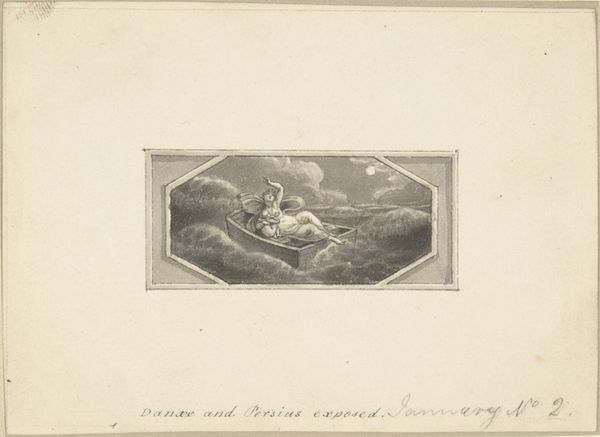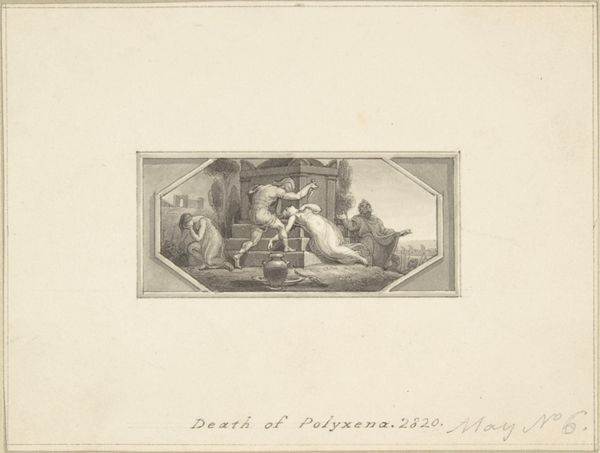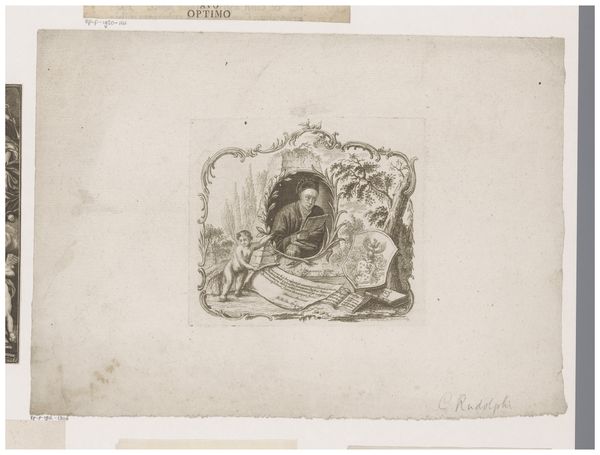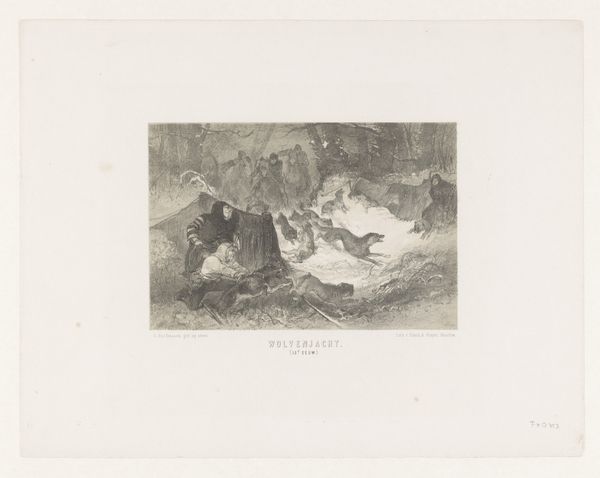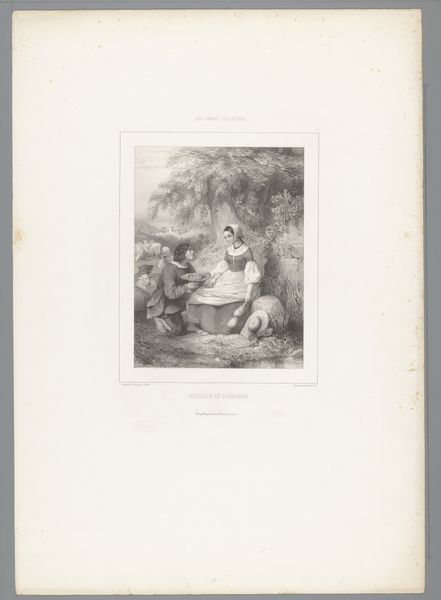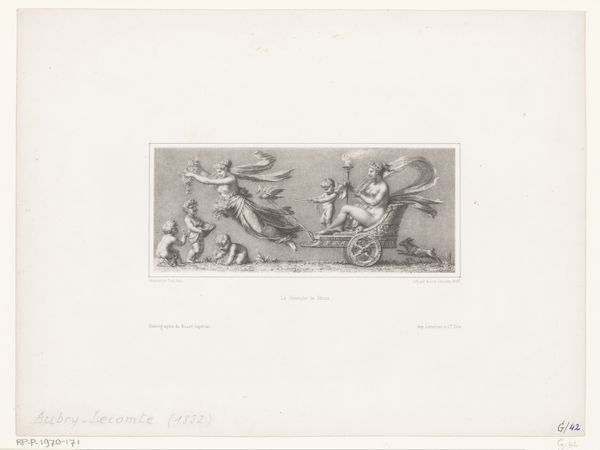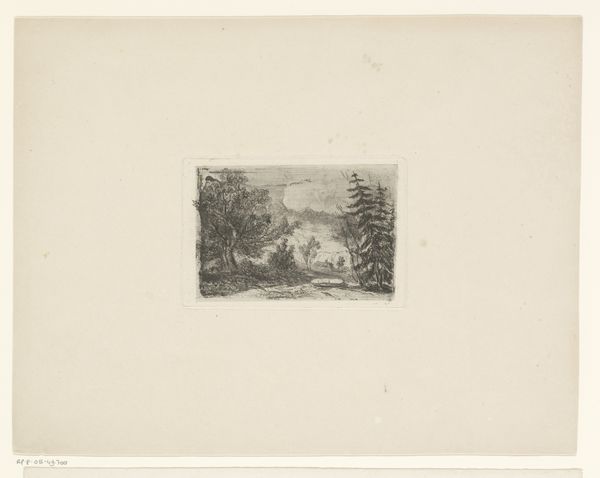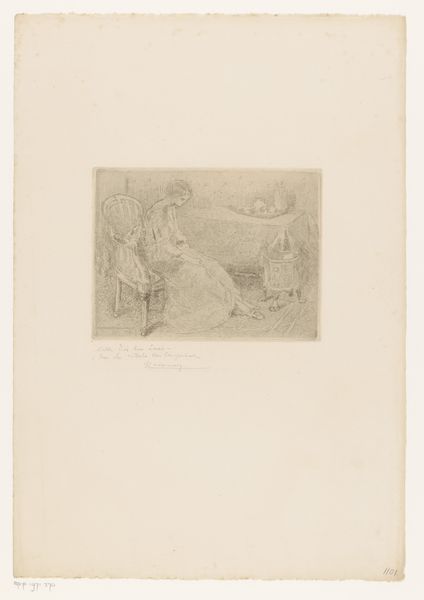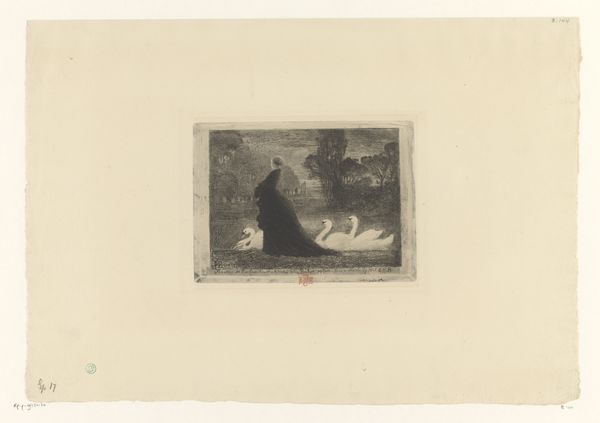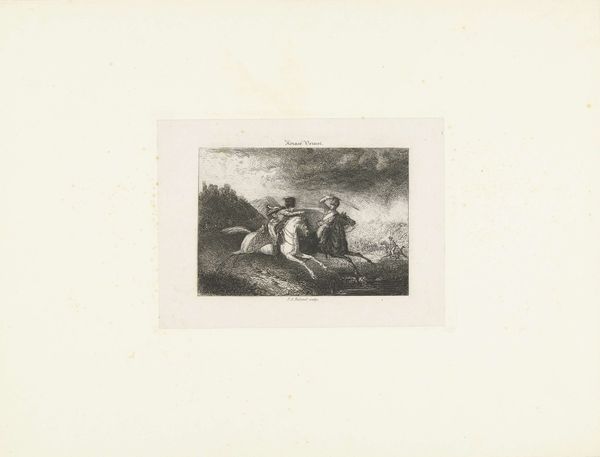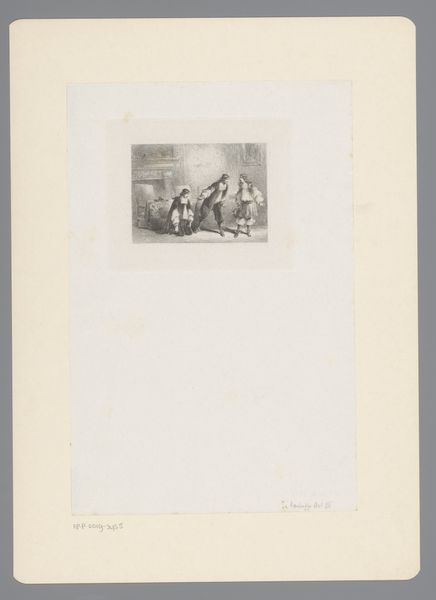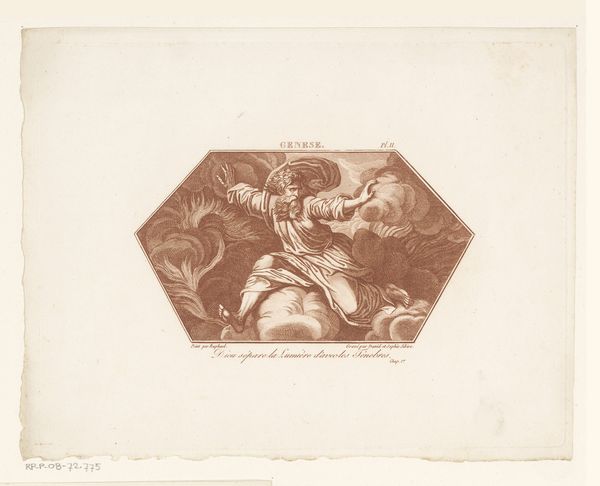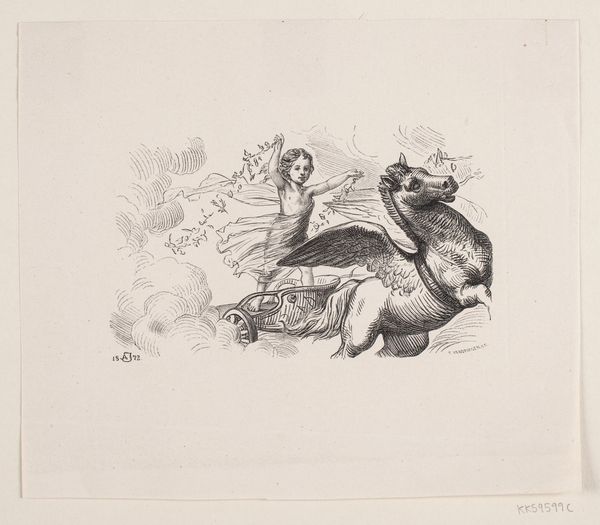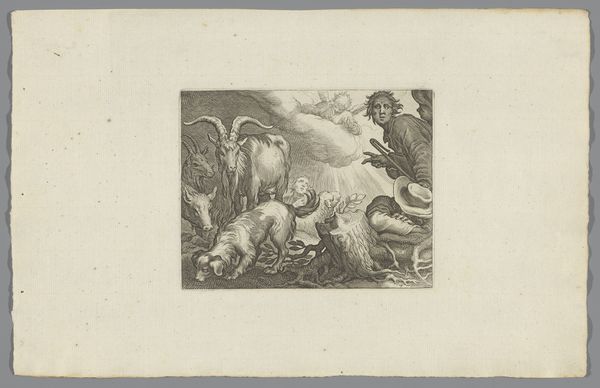
drawing, print, etching, paper, engraving
#
drawing
#
neoclacissism
#
narrative-art
# print
#
etching
#
figuration
#
paper
#
history-painting
#
academic-art
#
engraving
Dimensions: Sheet: 3 3/8 × 4 1/2 in. (8.6 × 11.4 cm)
Copyright: Public Domain
Edward Francis Burney created this delicate drawing, "Perseus and Andromeda," sometime in the late 18th or early 19th century. It captures a moment from Greek mythology, rich with themes that resonate across time. Andromeda, often seen as a symbol of female vulnerability, is rescued by Perseus from a sea monster. Burney's portrayal invites us to consider the power dynamics inherent in the rescue narrative. It's a story of a woman saved by a man, but what does it say about female agency and the narratives we inherit? During Burney’s time, ideas about heroism and femininity were evolving, influenced by societal changes and philosophical discourse. The drawing exists in a context where gender roles were being both reinforced and challenged. Think about how the emotional intensity of Andromeda's plight and Perseus's heroic stance might reflect the complex interplay of gender, power, and social expectation. The image is not merely an illustration of a myth, but a reflection on enduring themes that still shape our understanding of ourselves.
Comments
No comments
Be the first to comment and join the conversation on the ultimate creative platform.
